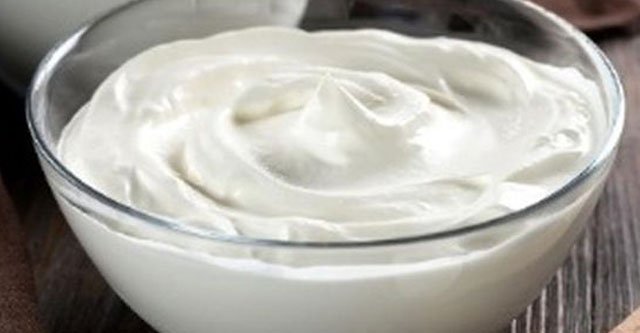Last Updated on June 28, 2021 by Dr Sharon Baisil MD
According to scientific research, Dahi is good for anyone who has diabetes. It helps prevent the risk of getting diabetes if you are pre-diabetic and also helps in managing blood sugar levels.
Consuming yogurt can have numerous health benefits for diabetic patients. It may have reducing properties that improve the blood sugar conditions in Type 2 Diabetic patients.
Dahi is considered to be one of the healthiest snack options for people with diabetes. It is also highly nutritious and enriched the body with many good components needed to keep the diabetic condition under check.
One important thing to keep in mind here is that the yogurt we refer to as an excellent food option for diabetes is a low-fat yogurt variety. The yogurt made from skimmed milk is best and recommended for diabetes. Diabetic patients must not consume Full-fat dairy products.
Greek yogurts are often the best non-fat varieties out there. An everyday serving of Dahi as an evening or bedtime snack can help with diabetes.
There are many different low-fat, healthy yogurts available in the market and stores. Also, be vigilant not to include extremely flavored or sweetened yogurt varieties, as they add unnecessary sugar to your body, leading to a rise in sugar issues.
One of the best qualities of Dahi is that it adds a lot of calcium to the body. As a product made out of milk, Dahi is very efficient in calcium.
Protein is an important and necessary nutrient in one’s diabetic diet. Yogurt is also rich in protein and supplies the body with a good amount of it. Proteins are nutrients that take longer to digest and help maintain metabolic rates, resulting in a stable digestive system.
Let us try answering this more directly.
Does Curd or Yogurt lower blood sugar levels?

We already cleared that Yogurt is safe as well as good for diabetics. That means it does not affect the blood sugar levels of the body.
It also contributes to keeping the gut healthy. Yogurt has probiotic properties that keep the gut safe and unaffected. This, in turn, results in an efficient functioning gut.
Diabetes is a condition caused by an ill-functioning metabolism due to insufficient insulin release in the body. This is a major cause of digestive dysfunctions leading to heightened blood sugar issues.
Carbohydrates are the major nutrients that fuel this metabolic disorientation in the body. They are acted upon immediately, leading to a high release of sugar in the bloodstream.
The yogurt is a safe and sufficing option for diabetic patients as it is low in carbohydrates. Moreover, the other good nutrients found in Yogurt assist in lowering blood sugar issues.
Diabetics are very vulnerable to catching other ailments and experience heightened symptoms. Abiding by a healthy and safe diabetic-specific plan helps in the overall maintenance of the health and to keep the body risk-free.
Yogurt also has many other benefits for the body. We will discuss these benefits in detail as we move further along.
For now, let us have a look at the glycemic index of Yogurt.
What is the Glycemic Index of Curd?

Knowing about the glycemic index of foods is a very useful way to determine a safe diet plan for diabetic patients. The glycemic ranking of foods based on a 0 to 100 scale can help decide what items to consider for the diabetic diet.
The glycemic index is observed and given according to the carbohydrate levels and their influence on the body. This observation and reading are then used to classify foods into the following categories:
| Sl. No. | Glycemic Index categories | Glycemic Index ranges |
| 1. | Low Glycemic Index (safe for diabetics) | 0 to 55 |
| 2. | Medium Glycemic Index (safe when taken in controlled quantities) | 55 to 69 |
| 3. | High Glycemic Index (unsafe for diabetics) | From 70 and above |
Now, you must be curious about what the Glycemic Index of curd is?
Well, the glycemic index of curd is just 36 and it falls in the low GI category. Low-fat plain yogurts can also have a GI as low as 14.
Now, let us have a look at the contents of yogurt.
What is the Nutritional composition of Dahi?
The following table shows the various nutrients and their quantities available in 100g of low-fat Dahi:
| Sl. No. | Nutrients found in 100g of yogurt | Amount available |
| 1. | Calories | 59 |
| 2. | Fats | 0.39 g |
| 3. | Proteins | 10.19 g |
| 4. | Carbohydrates | 3.6 g |
| 5. | Water | 85.1 g |
| 6. | Cholesterol | 5 mg |
| 7. | Calcium | 110 mg |
| 8. | Phosphorus | 135 mg |
| 9. | Selenium | 9.7 mg |
| 10. | Zinc | 0.52 mg |
| 11. | Potassium | 141 mg |
| 12. | Sodium | 36 mg |
| 13. | Choline | 15.1 mg |
| 14. | Magnesium | 11 mg |
| 15. | Manganese | 0.009 mg |
| 16. | Copper | 0.017 mg |
| 17. | Iron | 0.07 mg |
| 18. | Vitamin B2 | 0.278 µg |
| 19. | Vitamin B12 | 0.75 µg |
| 20. | Vitamin B5 | 0.331 µg |
| 21. | Vitamin A | 4 µg |
| 22. | Folate | 7 µg |
| 23. | Vitamin B6 | 0.063 µg |
| 24. | Vitamin B1 | 0.023 µg |
| 25. | Vitamin B3 | 0.208 µg |
| 26. | Vitamin E | 0.01 µg |
Now that we know about the internal components of Dahi, let us see how they benefit us.
What are the benefits of eating Dahi or Yogurt in Diabetes?
Following is a list of the advantages of eating Dahi:
- The calcium obtained from Dahi helps in the strengthening and protection of teeth and bones in the body.
- It is also enriched with minerals such as phosphorus, magnesium, and potassium. These are essential to keep the bones, metabolism, and heart healthily functional.
- Dahi is probiotic, meaning that Dahi’s bacteria can help maintain and improve gut health. It has been proven to avoid infections in the gut and prevent ailments such as irritable bowels, colon disorders, diarrhea, constipation, metabolic inefficiency, etc.
- The probiotic and mineral-rich qualities of yogurt also help in strengthening the immune system of the body.
- The presence of vitamin D in yogurt enhances the immune system and keeps away common flu, colds, coughs, etc.
- The various vitamins and minerals found in yogurt help keep the bones healthy and reduce the risks of diseases such as – arthritis, osteoporosis, etc.
- Proper varieties of yogurt can supply the body with good fats. It is crucial for heart health to have good levels of cholesterol. Yogurt can increase good cholesterol and reduce the risks of heart diseases.
- The anti-inflammatory and probiotic properties of yogurt keep away allergies as well.
- Yogurt can be used to treat skin and hair-related conditions as well. It is a nourishing and hydrating agent.
Special Precautions
- Individuals who are lactose intolerant should not have Yogurt, as it can induce allergic reactions and discomfort.
- The lactobacillus in yogurt can affect people with a weak immune and digestive system. Large amounts of yogurt can often lead to stomach issues.
References
- https://www.liebertpub.com/doi/abs/10.1089/jmf.2006.136
- https://www.hindawi.com/journals/ijhy/2018/8560835/
- https://www.banglajol.info/index.php/BJAS/article/view/9687
- https://nutritionj.biomedcentral.com/articles/10.1186/1475-2891-13-60
- https://www.ncbi.nlm.nih.gov/pmc/articles/PMC3642943/
- https://www.nature.com/articles/ismej201092
- https://www.sciencedirect.com/science/article/abs/pii/S0899900706003297
- https://academic.oup.com/bbb/article/70/5/1255/5953891
- https://www.liebertpub.com/doi/abs/10.1089/jmf.2006.9.328
- https://foodstruct.com/food/yogurt-greek-plain-nonfat
- https://timesofindia.indiatimes.com/life-style/health-fitness/diet/top-10-health-benefits-of-yoghurt/articleshow/20392287.cms




